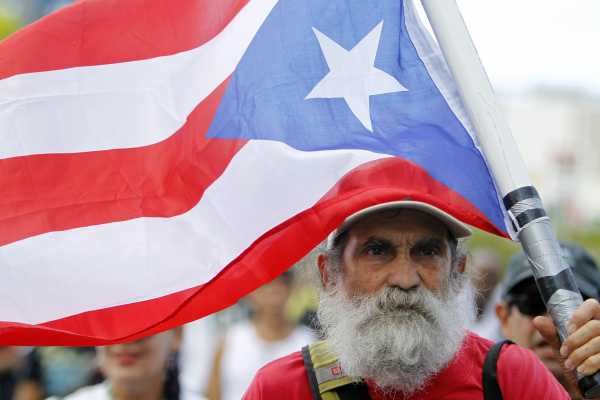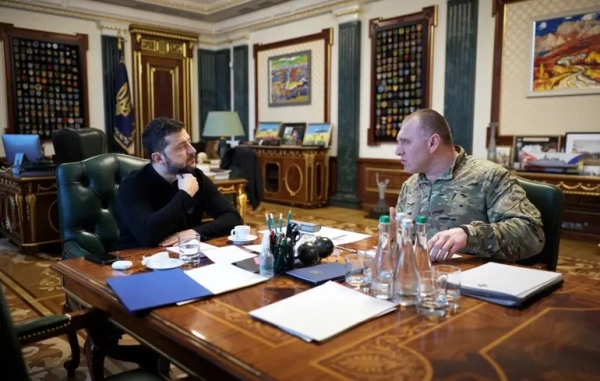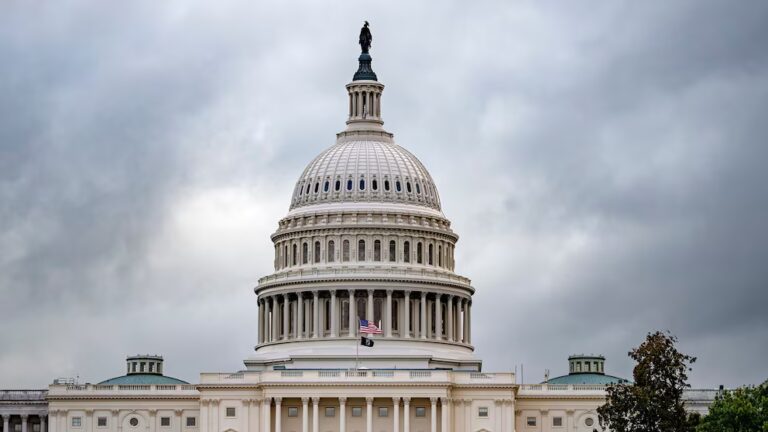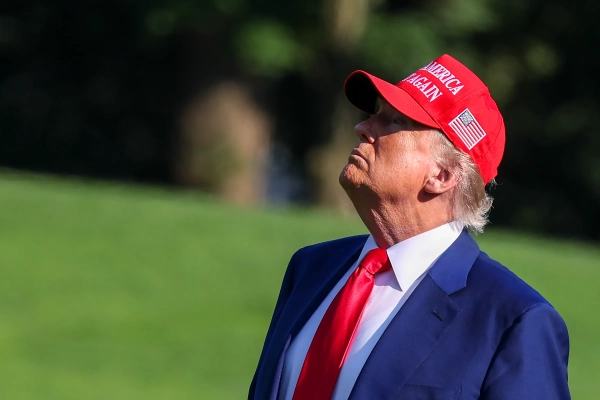
The Democratic primaries were historic in so many ways. The diverse pool of candidates expanded the national conversation to issues long ignored in national politics. They talked about the gender pay gap, civil rights for transgender Americans, and structural racism.
Yet there was one glaring omission. Moderators and Democrats on the stage basically ignored Puerto Rico. There were no questions about the US territory’s massive debt crisis. No questions about the island’s high poverty rate. No questions about how to fortify the island’s fragile power grid. These problems have existed for years, but came into sharp focus after Hurricane Maria’s category 4 winds pummeled the island in October 2017.
In fact, Puerto Rico was only mentioned once during the back-to-back debates. Former HUD Secretary Julián Castro brought it up when asked about the cost of preparing for climate change.
“After I announced my candidacy I went to San Juan, Puerto Rico. People should know if I’m elected president, everybody will count,” he said.
That’s it. That’s the only time anyone mentioned Puerto Rico. And it didn’t go unnoticed.
From a purely political perspective, ignoring Puerto Rico is a big mistake. About 3 million people live on the US island territory, and as American citizens, they can vote in every presidential primary. (Puerto Ricans who live there can’t vote in the general election, unless they live on the US mainland.) And the estimated 1.2 million Puerto Ricans who live in Florida are an important voting bloc in a super competitive state.
With the exception of Castro and Sen. Elizabeth Warren, who’ve made campaign stops in San Juan, the Democratic candidates vying for the White House have made minimal efforts to address the issues that Puerto Ricans care about.
At least eight candidates have weighed in on Puerto Rico’s political status and the push for statehood, according to NBC Latino, but haven’t explained how they would help resolve the divisive matter. Warren introduced a debt restructuring plan for Puerto Rico in May. A month later, Sen. Bernie Sanders proposed a bill to increase access to Medicaid and food stamps on the island.
But Puerto Rican advocacy groups believe it will take much, much more to dig Puerto Rico out of the worst economic crisis in the island’s history.
Here are just two of Puerto Rico’s pressing issues that the next US president (and arguably, the current one) need to address.
The debt crisis and economic downturn
Puerto Rico — a US territory since 1898 — is worse off than any other place in the United States. Unemployment is at 7.7 percent, nearly double the national rate, and 44 percent of residents live in poverty.
To be clear: Puerto Rico was already in horrible shape before the storm hit. The local government was bankrupt from years of irresponsible borrowing and Congress’s decision to let certain tax incentives expire for US companies doing business there. Democratic Gov. Ricardo Rosselló filed for bankruptcy-like protection in 2017 after defaulting on payments to Wall Street creditors (Puerto Rico owed $74 billion in bond debt).
The government there is operating under strict federal fiscal oversight, which has brought punishing austerity measures. An independent bankruptcy-like court operating under the Promesa Act has been helping Puerto Rico restructure its debt, and board members asked Rosselló to come up with a new, post-hurricane fiscal plan.
I asked Julio Ricardo Varela, co-host of the In The Thick political podcast and founder of Latino Rebels, what questions he thinks candidates need to address. Varela, who was born and raised in Puerto Rico, pointed to the unpopular Obama-era Promesa oversight board — which acts like an over controlling parent — and the austerity measures straining Puerto Rico’s economy.
“After Hurricane María struck the island, the situation there has only gotten worse. What would you do to help Puerto Rico recover financially?” Varela said he wants candidates to answer.
While investment in Puerto Rico has spiked post-Maria, it’s nowhere near enough to lift up the economy to pay off the government’s debts. As part of the austerity plan, Rosselló plans to shrink the government to about a third of its size and close about a quarter of its public schools, among other moves.
The next president needs to have a concrete plan to lift Puerto Rico out of this black hole.
Resolve the political status of Puerto Rico
The status of Puerto Rico has been the main political issue on the island since the United States annexed it in 1898 at the end of the Spanish-American War.
Over the years, Congress has ceded small amounts of autonomy to Puerto Rico, which now operates as a quasi-state. It has an independent elected local government, but without all the power and benefits of being a state — including a lack of real representation in Congress.
Puerto Ricans are American citizens, but they don’t pay federal income taxes if they live on the island. They pay payroll taxes to fund Social Security and Medicare, but the island gets limited funding for Medicaid and food stamps.
Strong political divisions within Puerto Rico over the future of the island have made it easy for Congress to ignore petitions to become a US state. There’s no consensus among the island’s 3.5 million people about whether it’s better to join the United States, remain a commonwealth, or gain complete independence.
The island’s current economic crisis, which began around 2008, has renewed the effort to gain statehood. More federal money would flow to Puerto Rico if it were a state, though it would also increase federal taxes on the people who live there.
In June 2017, after the pro-statehood party swept into power, Puerto Ricans on the island voted to join the United States as the 51st state. It was the fifth time the island has held a non-binding referendum on whether to join the republic. The vast majority voted in favor of statehood: 97 percent — the largest number yet.
The problem is that fewer than a quarter of registered voters turned out to the polls. That was mostly the result of a boycott from the anti-statehood political groups, who were upset with the wording of the referendum.
Puerto Rico’s non-voting representative in Congress, House Delegate Jenniffer González-Colón, recently introduced two House bills that would allow Puerto Rico to become the 51st American state — one before Hurricane Maria hit, and the other last summer.
The Puerto Rico Admission Act would create a task force to immediately start the process of transitioning Puerto Rico into a US state, which would happen by January 1, 2021. The latest bill has 53 Republican and Democratic co-sponsors.
But nothing has moved forward since. And many Puerto Ricans want to know if the next president is fine with the current second-class status of the island.
“Is Puerto Rico a colony of the United States? Why, or why not?” is another question Varela said he wants candidates to answer.
Puerto Ricans vote
The 3,500-square-mile island in the Caribbean looks tiny on a map. But the population is dense — more Americans live in Puerto Rico than in Nevada, Montana, or Maine. So voters who live on the island send a fair amount of delegates to the Democratic National Convention during primary season. Puerto Rico’s estimated 59 delegates outnumber those in more than half of US states.
For example, about 58,800 voters in Puerto Rico cast ballots during the June 2016 Democratic primary. The island ended up pledging 37 delegates to Hillary Clinton and 23 to Bernie Sanders. In the Republican primary that year, Florida Sen. Marco Rubio won all 23 delegates.
For a decade now, Puerto Rican families have been resettling in Central Florida, largely because of the limited economic opportunities on the island (and more recently, because of the hurricane). The number of Puerto Ricans living in central Florida had climbed to more than 332,000 even before Hurricane Maria hit, and demographers believe they will soon outnumber Cuban Americans as the largest Latinx group in Florida.
The arrival of Puerto Ricans over the past 15 years has helped flip the once-Republican Orlando region into a Democratic stronghold. Puerto Ricans are widely considered swing voters, but tend to vote for Democrats.
Puerto Ricans also overwhelmingly despise Trump, who repeatedly denigrated hurricane survivors and keeps trying to withhold disaster aid. So whoever wins the Democratic nomination will more than likely have boricua support. But is their contempt for Trump enough reason to get high turnout at the polls? That’s still unclear.
Which makes it all the more surprising that Democrats squandered an opportunity to directly acknowledge Puerto Rican viewers during their first debates in Miami.
Sourse: vox.com






